International
Macron: France will accompany Morocco in the defense of its autonomy plan for the Sahara
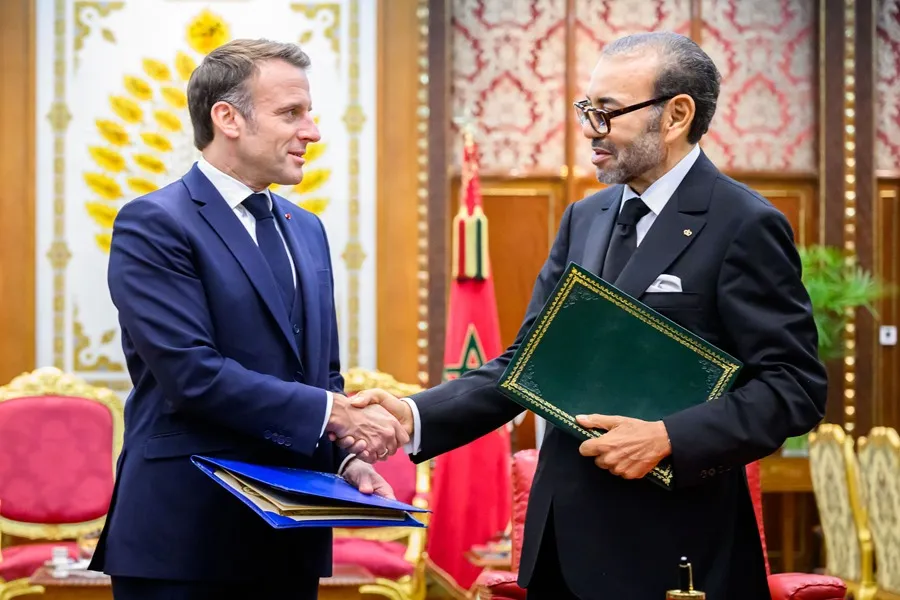
French President Emmanuel Macron said on Tuesday that his country will accompany Morocco in international bodies to defend the autonomy plan proposed by Rabat in 2007 as a solution to the Western Sahara conflict.
“Anchored in history, respectful of reality and promising for the future. This position is what France will implement to accompany Morocco in international instances,” Macron said in a speech delivered before the two chambers of the Moroccan Parliament on the second day of his state visit to Morocco.
The only basis for resolving the Sahara conflict
Macron again defended “autonomy under Moroccan sovereignty” as the “only basis” to resolve the conflict of the former Spanish colony, words that provoked the applause of the parliamentarians, who stood in the hemicycle.
“I reaffirm it here before you: for France, the present and future of this territory is part of the framework of Moroccan sovereignty,” said Macron, who recalled the letter he sent to King Mohamed VI on July 30 in which he expressed France’s new vision regarding this conflict.
Macron said that Morocco and France are “faithful allies in murky times” and said that his country “has never failed Morocco in all the existential issues it faces.”
According to the French president, at the head of these issues is the conflict of the former Spanish colony, administered 80% by Morocco and whose sovereignty is disputed by the Saharawi independence fighters of the Polisario Front.
Macron: we have decided to write a new book
The French president specified that France’s new position on the Sahara “is not hostile to anyone” but “allows us to open a new page among us as with all those who want to act in a framework of regional cooperation in the Mediterranean with the neighboring countries of Morocco and with the European Union.”
Macron said that he has agreed with King Mohamed VI to “write a new book together” in their bilateral relationship to face “the challenges of the century,” a “historical opportunity and a strategic duty” for both countries.
His state visit to Morocco puts an end to almost three years of diplomatic crisis and one of its high points has been the speech before parliamentarians, in which also the phenomenon of irregular immigration and the need for a “natural and fluid cooperation in consular material.
“This is a matter of mutual trust,” he said, and emphasized that “for many French people it is one of the most important expectations,” so he indicated that “results” are needed.
International
Death toll from southern Spain train crash rises to 40
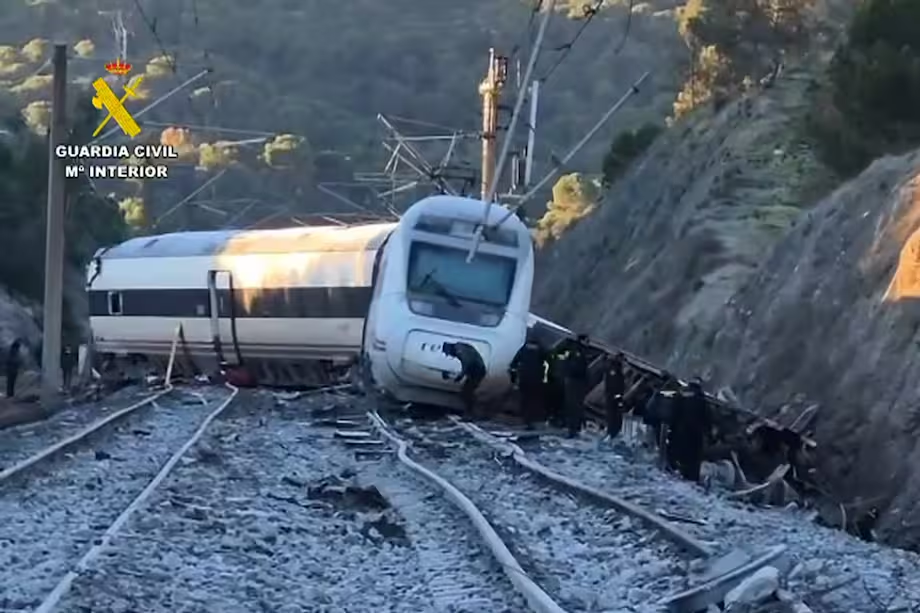
The death toll from the train accident that occurred on Sunday in southern Spain has risen to 40, according to investigative sources cited by EFE on Monday afternoon.
Since early Monday, search operations have focused on the damaged carriages of a Renfe train bound for Huelva, which collided with the last derailed cars of an Iryo train traveling from Málaga to Madrid after it left the tracks.
The crash has also left more than 150 people injured. Of these, 41 remain hospitalized, including 12 in intensive care units at hospitals across the Andalusia region.
More than 220 Civil Guard officers are working at the site, searching the railway line and surrounding areas for key evidence to help identify victims and determine the causes of the accident.
The tragedy has revived memories of the deadliest railway disasters in Europe in recent decades. In Spain, the most severe occurred on July 24, 2013, when an Alvia train derailed near Santiago de Compostela, killing 80 people and injuring 130 others.
At the European level, the worst rail disaster took place on June 3, 1998, in Eschede, northern Germany, when a high-speed train struck a bridge pillar at 200 kilometers per hour, resulting in 98 deaths and 120 injuries.
International
Spain’s Prime Minister pledges transparency after train crash kills at least 39
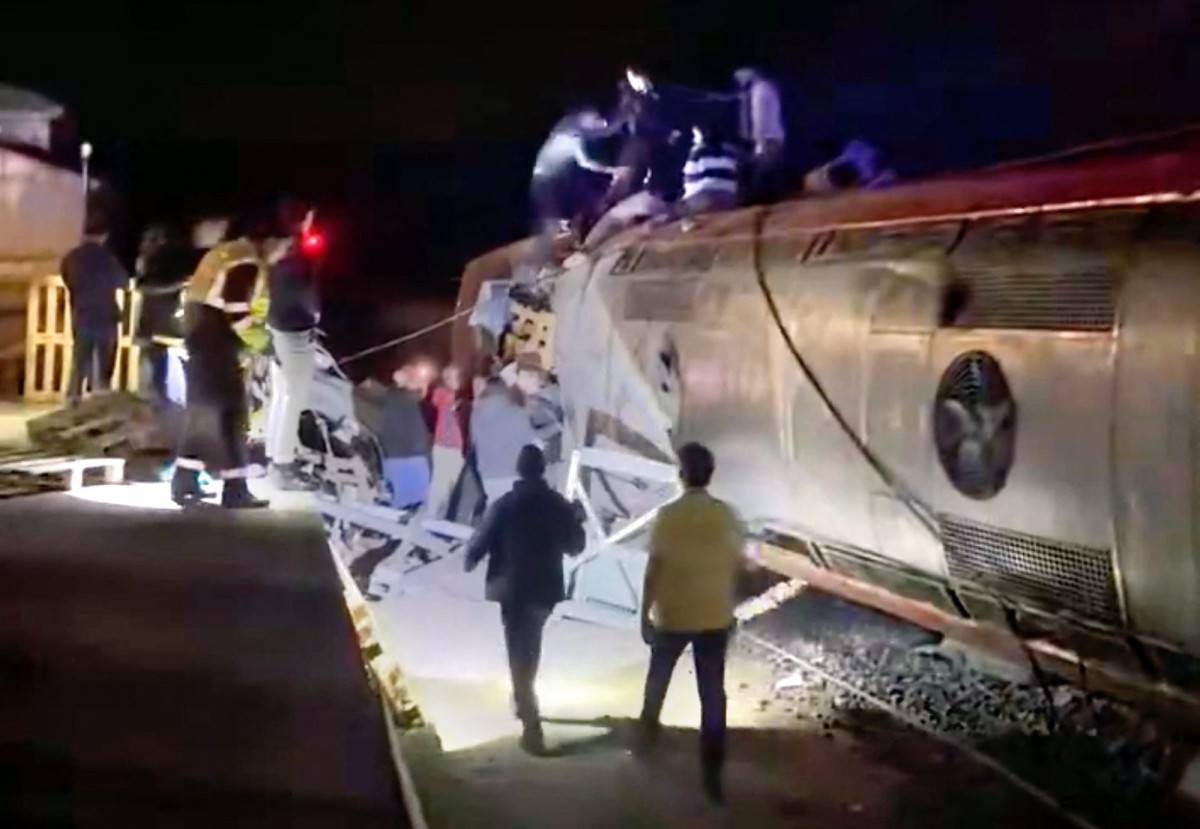
Spanish Prime Minister Pedro Sánchez pledged on Monday to ensure “absolute transparency” regarding the causes of a train crash that killed at least 39 people on Sunday in southern Spain, warning that the death toll could still rise.
The fatal accident occurred in the Andalusia region, where the number of confirmed deaths reached 39 by Monday morning, according to a spokesperson for the Ministry of the Interior.
Authorities were preparing to deploy heavy machinery to lift several derailed train cars. “We are waiting for cranes to be installed this morning to lift cars one, two and three of the Alvia train, which suffered the most damage,” said Andalusian regional president Juanma Moreno Bonilla on regional television. “It is likely that once they are lifted, we may find more victims,” he added.
The disaster also left more than 120 people injured. As of Monday afternoon, 43 victims remained hospitalized, including 12 in intensive care, according to emergency services.
International
Over 160 christian worshippers kidnapped in Kaduna Church attacks

More than 160 Christian worshippers were abducted on Sunday during coordinated attacks carried out by armed gangs on two churches in a remote village in Kaduna State, northern Nigeria, according to a cleric and a United Nations report accessed by AFP on Monday.
Nigeria, Africa’s most populous nation, has witnessed a renewed surge in mass kidnappings since November, prompting the United States government to carry out military strikes on Christmas Day in the northwestern state of Sokoto.
U.S. President Donald Trump accused Nigerian armed groups of targeting Christians, describing the violence as a form of “genocide” against the religious community.
According to Reverend Joseph Hayab, president of the Christian Association of Nigeria in the north, the attackers arrived in large numbers, blocked access to the churches, and forced worshippers to flee into nearby forests.
“The attackers came in large numbers, sealed off the entrances to the churches, and drove the faithful into the bush,” Hayab told AFP.
-

 International3 days ago
International3 days agoU.S. deportation flight returns venezuelans to Caracas after Maduro’s ouster
-

 International5 days ago
International5 days agoUkraine declares nationwide energy emergency amid russian attacks and extreme cold
-

 International5 days ago
International5 days agoX moves to block Grok from creating sexualized images of real people amid legal scrutiny
-

 International5 days ago
International5 days agoIran closes airspace amid U.S. threats and deadly nationwide protests
-

 International5 days ago
International5 days agoHillary Clinton skips Epstein inquiry as house panel threatens contempt charges
-

 International5 days ago
International5 days agoFrance joins Denmark’s ‘Operation Arctic Resistance’ in Greenland amid U.S. tensions
-

 Central America2 days ago
Central America2 days agoGuatemala prison uprisings leave 46 guards held by gangs
-

 International5 days ago
International5 days agoU.S.–Denmark tensions escalate as Trump pushes NATO to back U.S. claim on Greenland
-
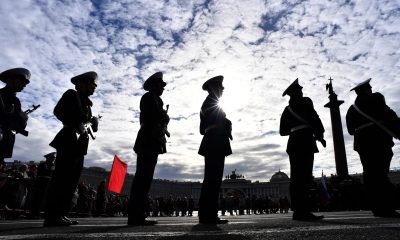
 International5 days ago
International5 days agoUK Intelligence estimates russian casualties in Ukraine at over 1.2 million
-
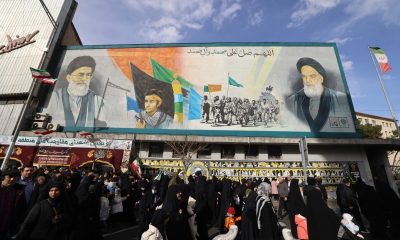
 International3 days ago
International3 days agoCanada accuses Iran of killing its citizen during anti-government unrest
-

 International11 hours ago
International11 hours agoDeath toll from southern Spain train crash rises to 40
-
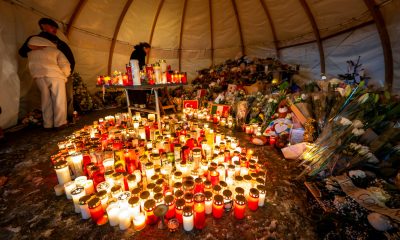
 International5 days ago
International5 days agoSwiss Canton of Valais Grants Emergency Aid to Victims of Crans-Montana Bar Tragedy
-

 International3 days ago
International3 days agoSheinbaum highlights anti-drug gains after U.S. says challenges remain
-

 Central America11 hours ago
Central America11 hours agoGuatemala raises police death toll to nine after gang violence escalates
-

 International2 days ago
International2 days agoChile declares state of catastrophe as wildfires rage in Ñuble and Biobío
-

 International11 hours ago
International11 hours agoOver 160 christian worshippers kidnapped in Kaduna Church attacks
-

 International3 days ago
International3 days agoFormer South Korean President Yoon sentenced to five years in prison
-

 International11 hours ago
International11 hours agoSpain’s Prime Minister pledges transparency after train crash kills at least 39


























